The Mogilevtransmash plant relies on electric transport, cooperation with science and creative specialists
9 October 2023
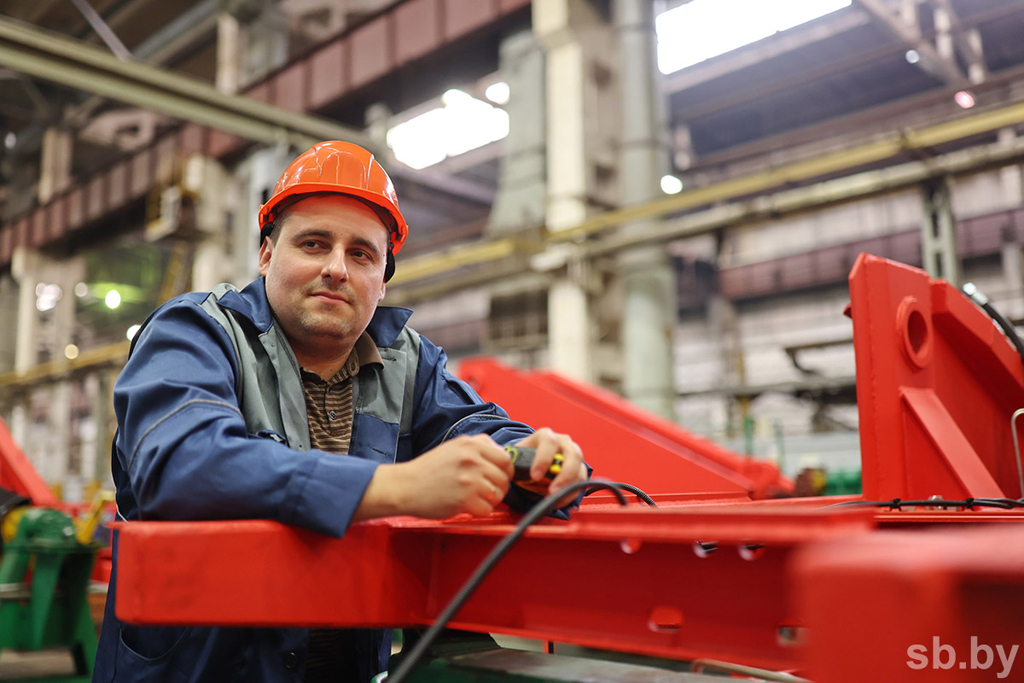
The idea embodied in "iron"
Evgeny Kovalev, a graduate of the Belarusian-Russian University, came to the plant about 10 years ago-just at the time when they decided to master the production of municipal equipment. He started out as a design engineer, and now heads the design bureau for the design of municipal equipment of the Mogilevtransmash plant of JSC MAZ, leading a team of young specialists:
- The designer's flow of thoughts never stops. When I leave the factory entrance, I still continue to think about technical tasks. And here the stability of the enterprise and its continuous development are very important, because the design engineer must be sure that his know-how can be implemented.
Kovalev believes that a mechanical engineering design engineer should have an analytical mindset, be active, inventive, and keep abreast of all innovations.
Utility equipment is now in trend. In the Russian market, a niche for Belarusian machine builders was vacated by competitors from European countries. And the impetus for the development of municipal equipment for the domestic market was state programs for technical re-equipment of the housing and communal sector, an emphasis on the environment — separate garbage collection and green energy. A new trend is being developed — an electric garbage truck. Belarus is one of the world leaders in the development of passenger electric transport. Evgeny Kovalev notes that utility vehicles successfully fit into the project of cars with green license plates:
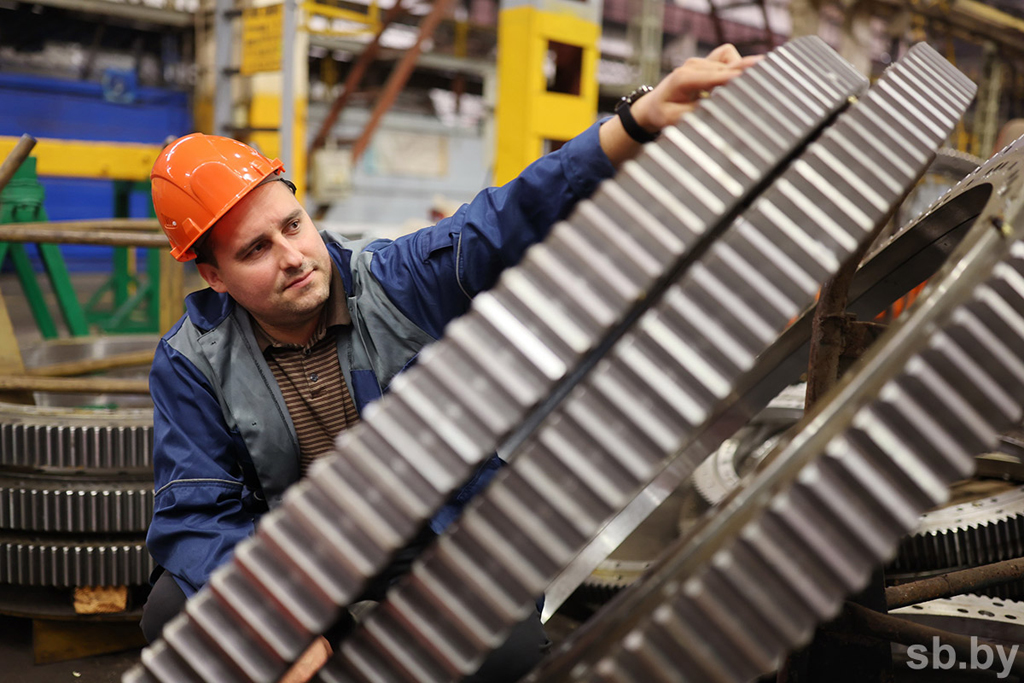
— Design and development work is already underway in cooperation with the MAZ Advanced Development Center and the Joint Institute of Mechanical Engineering of the National Academy of Sciences of Belarus. They are developing electric basses. The entrance to the cab will be lowered, as in a bus, which is convenient for the driver.
At the exhibition of equipment of the Mogilev enterprise, several new products are presented at once. Among them-two samples of garbage trucks. Evgeny Kovalev talks so enthusiastically about technical bells and whistles, as if we are talking about supercars:
— One of the machines is designed to take out garbage in a boat container, for example, from construction sites -an order from our dealer. And the second model just came off the assembly line. Its feature is a chassis with a rotary axis, which reduces the turning radius of the overall car. By the way, Russian manufacturers do not produce them.
Lean manufacturing and Industry 4.0
In the workshop of Mogilevtransmash, we meet Artur Koroteev, Head of the Department of Welding Equipment and Technology of the BRU. He, like Evgeny Kovalev, is 35 years old. Candidate of Technical Sciences, one of the 100 talented young scientists in the country, was awarded a Presidential scholarship. This is for an amateur welding is far from science, and in any machine-building enterprise, welded structures are the basis of everything.
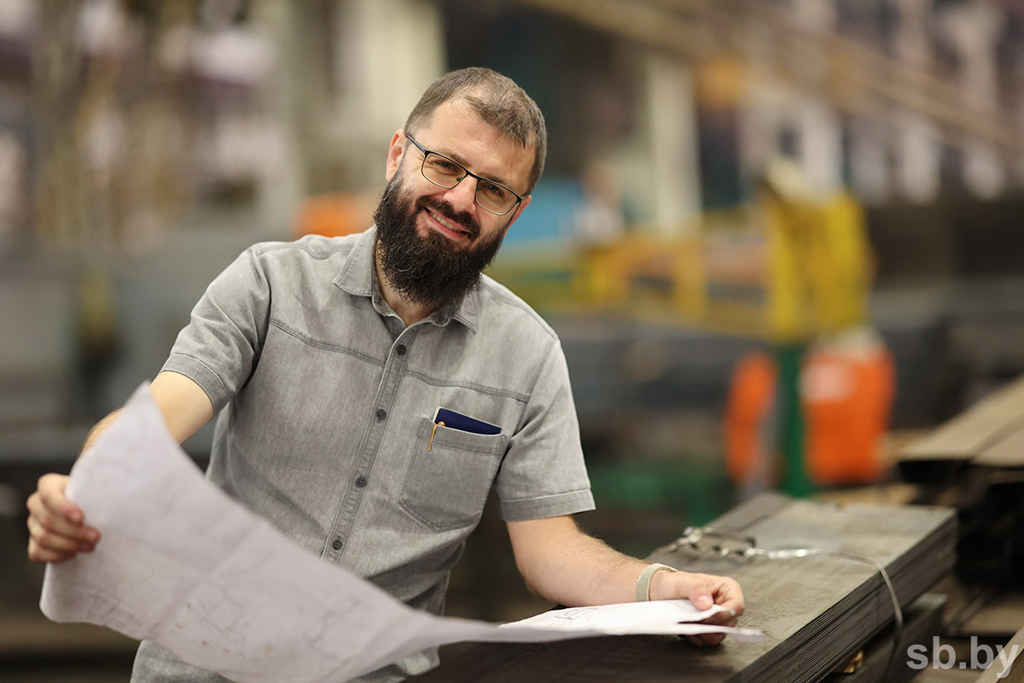
-Now the stage has come when, due to sanctions restrictions, emphasis is placed on developing our own technologies and materials, — Artur Koroteev demonstrates the project of BRU scientists. — This truck crane has an ovoid boom, which provides increased load capacity. This structure is made of high-strength steels. Previously, European welding materials and technologies were used, now you can see our solution. By the way, the research work of our student on this topic received the degree of laureate at the republican competition.
A branch of the department has already been established at the plant. While classes are held in the format of introductory excursions to the factory, soon laboratory work for undergraduates will take place not in classrooms — but in workshops.
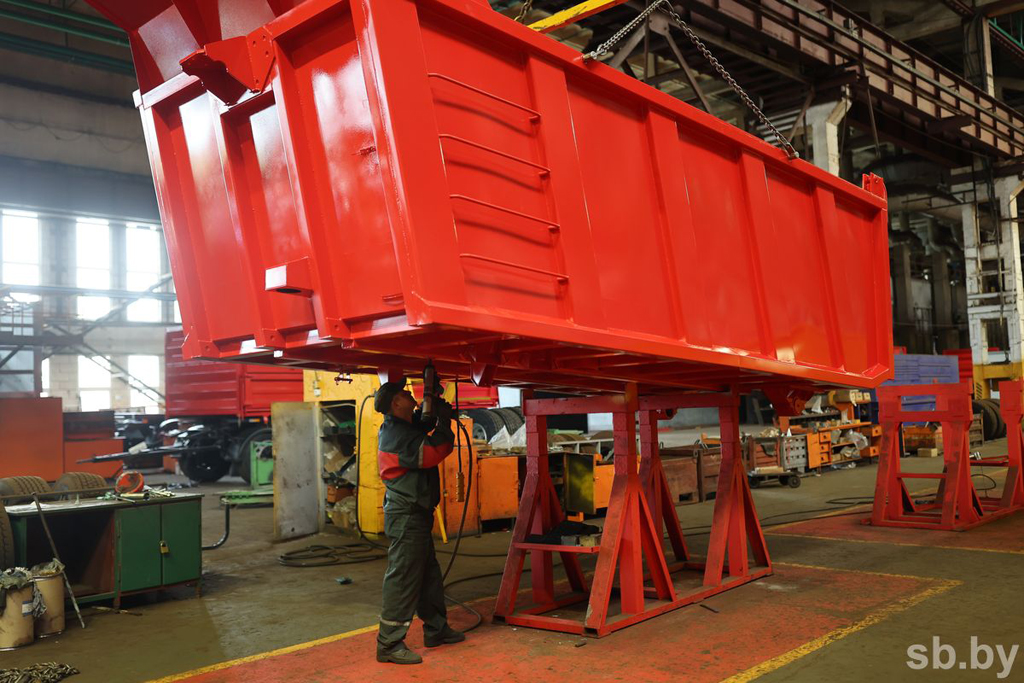
"It's a common practice," says Artur Koroteev. — The University has branches of departments in many factories. In scientific papers, we do not solve abstract problems. The number of economic agreements on high-tech projects with enterprises of the republic reaches 400 per year. With the support of the state, we were able to maintain GOST in our industry. Previously, someone laughed at this, but now our state-accredited certification center is being contacted from other countries. Our department is the largest educational and scientific center for welding in Belarus. Thanks to our participation in the Union State programs, we have a powerful laboratory with unique equipment.
The design service of the plant consists of 50 people, the average age is 35 years.
Chief designer of the company Pavel Karankevich, also a graduate of the Belarusian-Russian University, believes:
— In order for mechanical engineering to keep up with the engine of innovation, it is necessary to expand cooperation between scientific institutes, universities and factories. We plan to launch a joint project with BRU scientists on the calculation of metal structures. We provide a three-dimensional model of the new car and get scientific recommendations on how to improve it.
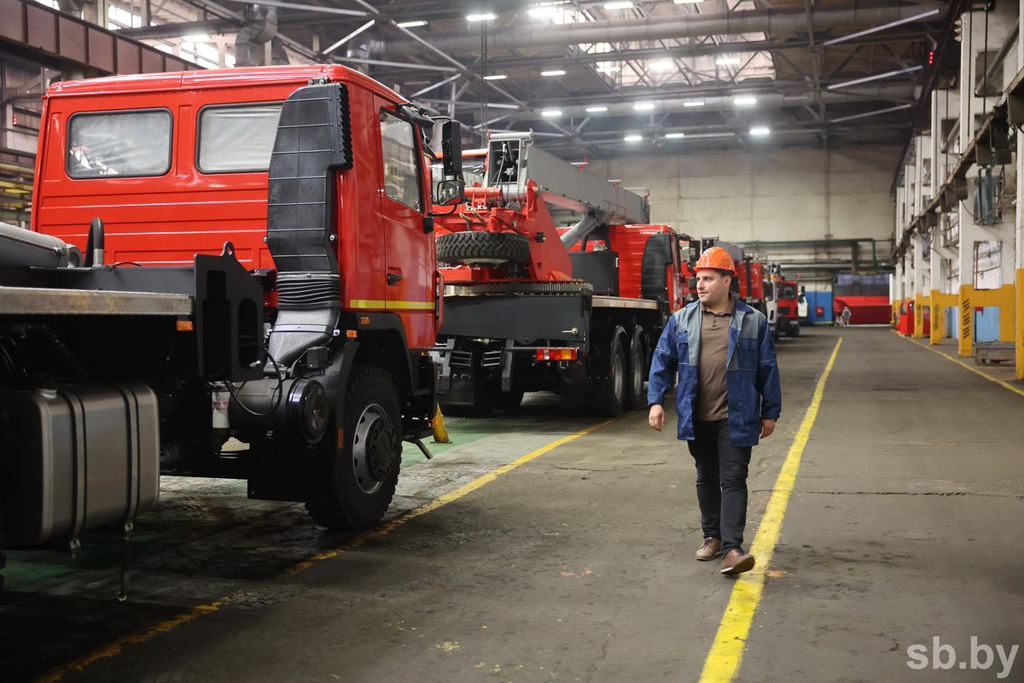
Today Mogilevtransmash supplies its products to all EAEU countries, Georgia, Uzbekistan, Vietnam, Cuba, countries of the African continent and Latin America. High-margin product-truck cranes: 150 cars per year on pre-orders. In trailed vehicles in the top — grain carriers: an order for 120 cars from farmers from the Saratov region. Pavel Karankevich is convinced that the key to the competitiveness of the domestic machine — building industry in the era of turbulence in the global economy is the state policy to preserve scientific and human potential:
— Belarus has serious competencies in the production of quarry, passenger and agricultural machinery since the Soviet Union. An important breakthrough in the Belarusian engineering industry is the first mass-produced passenger car. With a population of less than 10 million people, hundreds of machine-building enterprises in the republic are a clear result of state policy priorities.




